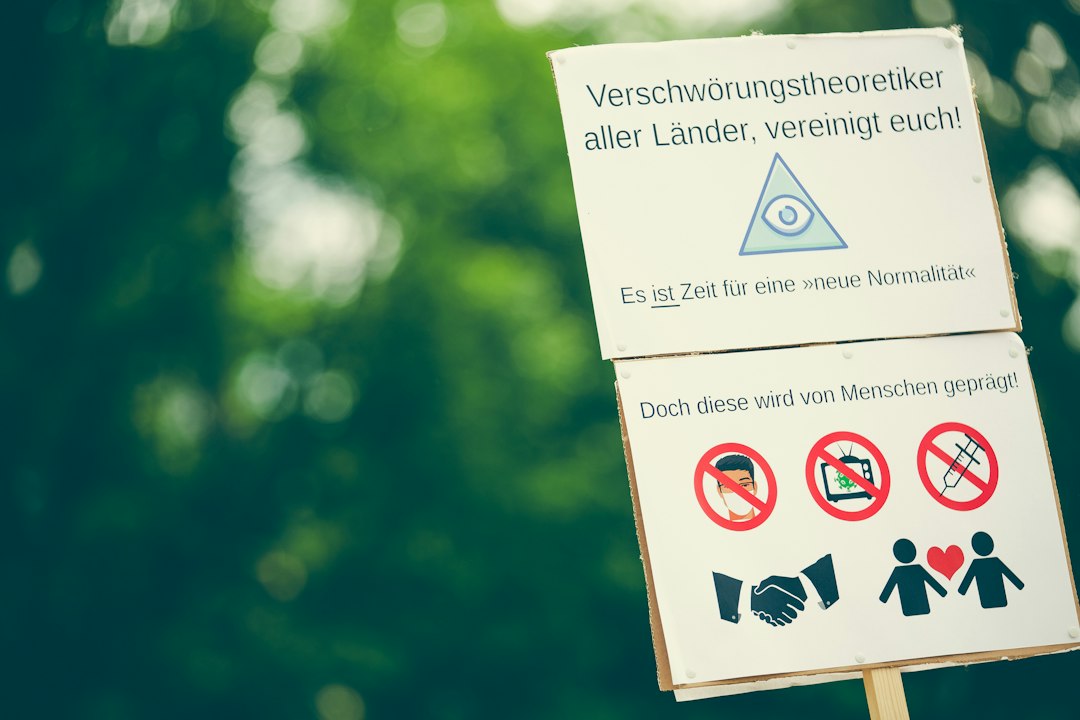The New World Order (NWO) is a term that refers to a global conspiracy theory, which suggests that a secretive elite group is working behind the scenes to establish a totalitarian world government. This concept has gained significant attention and controversy over the years, with proponents arguing that it is crucial to understand the NWO in order to protect individual freedoms and sovereignty.
The NWO is often associated with globalization, as it seeks to create a unified global system of governance, economy, and culture. It aims to eliminate national boundaries and establish a single world government that would have complete control over all aspects of human life. Understanding the NWO is important because it raises questions about the balance between individual rights and collective security, as well as the potential erosion of national sovereignty.
Key Takeaways
- The New World Order is a concept of a global government and economic system.
- The idea of a New World Order has historical roots dating back to the 18th century.
- Key players in the New World Order include governments, corporations, and international organizations.
- The globalization of the New World Order has led to increased interconnectedness and economic inequality.
- The economic impact of the New World Order benefits the wealthy and powerful while disadvantaging the poor and marginalized.
The Historical Roots of the New World Order: How did it come to be?
The historical roots of the NWO can be traced back to various events and ideologies that have shaped the modern world. One significant event was the establishment of the United Nations (UN) in 1945, which aimed to promote international cooperation and prevent future conflicts. While the UN was initially seen as a positive step towards global peace, some conspiracy theorists argue that it is actually a tool for the NWO to exert control over nations.
Another historical event that contributed to the creation of the NWO narrative was the end of the Cold War in 1991. With the collapse of the Soviet Union, there was a shift in global power dynamics, leading some to believe that a new world order was emerging. This perception was further fueled by the rise of globalization and advancements in technology, which made it easier for information and ideas to spread globally.
In addition to historical events, secret societies have also played a role in shaping the NWO narrative. Groups such as the Illuminati and Freemasons have been associated with the NWO, with conspiracy theorists suggesting that they are the puppet masters behind the scenes. While there is limited evidence to support these claims, the secrecy surrounding these societies has fueled speculation and conspiracy theories.
The Key Players in the New World Order: Who is involved and what are their goals?
The NWO is often portrayed as being orchestrated by a small group of powerful individuals and organizations. Some of the major players associated with the NWO include international financial institutions such as the World Bank and the International Monetary Fund (IMF), multinational corporations, and influential politicians and leaders.
The goals of the NWO vary depending on who you ask, but some common themes emerge. One goal is to establish a global government that would have complete control over all aspects of human life, including politics, economy, and culture. This would involve the erosion of national sovereignty and the establishment of a centralized authority.
Another goal of the NWO is to create a global economic system that benefits the elite at the expense of the majority. This would involve policies that promote free trade, deregulation, and privatization, which critics argue can lead to increased inequality and exploitation.
The Globalization of the New World Order: How is it affecting the world?
| Metrics | Data |
|---|---|
| Number of countries affected by globalization | 195 |
| Percentage of world GDP accounted for by emerging economies | 59% |
| Number of multinational corporations operating globally | Over 80,000 |
| Number of people living in extreme poverty worldwide | 736 million |
| Number of jobs lost due to outsourcing | 2.4 million in the US alone |
| Number of refugees worldwide | 26 million |
| Number of international treaties and agreements related to globalization | Over 400 |
The NWO and globalization are closely intertwined, as both seek to create a unified global system. Globalization refers to the increasing interconnectedness and interdependence of countries through trade, communication, and cultural exchange.
The NWO has had a significant impact on globalization by promoting policies that facilitate the free flow of goods, services, and capital across borders. This has led to increased trade and economic integration, but it has also raised concerns about job losses, environmental degradation, and cultural homogenization.
On the other hand, globalization has also influenced the NWO by creating new opportunities for communication and organizing. The internet and social media have allowed individuals and groups to connect and mobilize on a global scale, challenging the traditional power structures and narratives promoted by the NWO.
The Economic Impact of the New World Order: Who benefits and who loses?
The economic impact of the NWO is a topic of much debate, with proponents arguing that it promotes economic growth and prosperity, while critics argue that it exacerbates inequality and exploitation.
One of the winners of the NWO’s economic policies is multinational corporations, which benefit from the removal of trade barriers and access to new markets. These corporations can exploit cheap labor and resources in developing countries, leading to job losses and environmental degradation.
On the other hand, the losers of the NWO’s economic policies are often workers in developed countries who face job insecurity and wage stagnation. The NWO’s emphasis on deregulation and privatization can also lead to the erosion of workers’ rights and social safety nets.
The Political Impact of the New World Order: How is it changing the way we govern?

The NWO has had a significant impact on the way we govern, particularly in terms of national sovereignty and the role of international organizations.
One of the key impacts of the NWO is the erosion of national sovereignty, as countries are increasingly bound by international agreements and institutions. This can limit a country’s ability to make decisions that are in its own best interest, as it must consider the interests of other nations and adhere to global norms and standards.
International organizations such as the United Nations and the World Trade Organization play a central role in promoting the NWO’s agenda. These organizations have the power to enforce international laws and regulations, which can override national laws and policies.
The Technological Revolution and the New World Order: How are technology and the NWO intertwined?
Technology has played a crucial role in shaping the NWO’s agenda and goals. Advances in communication technology have made it easier for information and ideas to spread globally, allowing the NWO to promote its narrative and gain support.
Technology has also facilitated the globalization of the economy, making it easier for multinational corporations to operate across borders. This has led to increased economic integration and the concentration of power in the hands of a few global players.
Furthermore, technology has been used as a tool for surveillance and control, with governments and corporations collecting vast amounts of data on individuals. This raises concerns about privacy and the potential for abuse of power by the NWO.
The Role of Media in the New World Order: How does the media shape our understanding of it?
The media plays a crucial role in shaping our understanding of the NWO, as it is responsible for disseminating information and shaping public opinion.
The media can promote the NWO’s agenda by framing issues in a certain way and presenting a particular narrative. This can influence public opinion and shape political discourse, making it easier for the NWO to gain support for its policies.
Media consolidation is another factor that has contributed to the NWO’s influence. As a few large corporations control a significant portion of the media landscape, they have the power to shape public opinion and control the flow of information.
The Resistance to the New World Order: Who is fighting against it and why?
There are various groups and individuals who oppose the NWO and its agenda. These include conspiracy theorists, activists, and grassroots movements who are concerned about the erosion of individual freedoms, national sovereignty, and economic inequality.
Some resistance movements focus on exposing what they see as the hidden agenda of the NWO, while others work towards creating alternative systems that prioritize local autonomy and sustainability.
Resistance to the NWO is often fueled by a desire for greater transparency, accountability, and democracy. Many people feel that decisions about their lives should be made at the local level, rather than by a centralized global authority.
What does the future hold for the New World Order and what can we do about it?
The future of the NWO is uncertain, as it faces significant challenges and opposition. While the NWO has made significant progress in promoting its agenda, there is also a growing resistance movement that is working to expose its hidden agenda and promote alternative visions of the future.
Individuals can play a role in resisting the NWO by staying informed, questioning mainstream narratives, and supporting grassroots movements that promote transparency, accountability, and democracy. By working together, we can create a future that prioritizes individual freedoms, social justice, and environmental sustainability.
FAQs
What is the New World Order?
The New World Order is a term used to describe a hypothetical global government or a powerful group of individuals who control the world’s political, economic, and social systems.
Who is behind the New World Order?
There is no concrete evidence to suggest that any specific group or individual is behind the New World Order. Some conspiracy theories suggest that powerful families, secret societies, or international organizations such as the United Nations are involved.
Is the New World Order real?
There is no concrete evidence to suggest that the New World Order is real. The concept is largely based on conspiracy theories and speculation.
What are the goals of the New World Order?
The goals of the New World Order, if it exists, are not clear. Some conspiracy theories suggest that the group aims to establish a one-world government, while others suggest that they seek to control the world’s resources and population.
What evidence is there to support the existence of the New World Order?
There is no concrete evidence to support the existence of the New World Order. The concept is largely based on conspiracy theories and speculation.
What is the role of the United Nations in the New World Order?
There is no evidence to suggest that the United Nations is involved in the New World Order. The organization’s stated goals are to promote peace, security, and cooperation among nations.
What is the Illuminati’s role in the New World Order?
There is no evidence to suggest that the Illuminati, a secret society that is often associated with conspiracy theories, is involved in the New World Order. The existence of the Illuminati itself is also a matter of debate and speculation.







